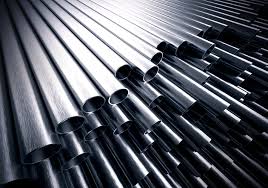precision metal tubing
Nov . 26, 2024 04:38
The Advantages of Precision Metal Tubing in Various Industries
Precision metal tubing is an essential component in a wide range of applications, thanks to its durability, versatility, and engineering specifications. From aerospace to medical devices, the demand for high-quality metal tubing continues to rise. This article explores the benefits and applications of precision metal tubing, highlighting why it has become a preferred choice for manufacturers and engineers alike.
Understanding Precision Metal Tubing
Precision metal tubing is characterized by its exact measurements and tolerances, which make it suitable for critical applications where standard tubing might not suffice. It often undergoes advanced manufacturing processes, including machining, laser cutting, and welding, to achieve the desired specifications. Common materials used in precision metal tubing include stainless steel, aluminum, copper, and titanium, each selected for its unique properties and suitability for different applications.
Advantages of Precision Metal Tubing
1. High Tolerance and Dimensional Accuracy
One of the standout features of precision metal tubing is its ability to maintain strict tolerances. This reliability is crucial in industries where even the slightest deviation can lead to catastrophic failures. For example, in the aerospace sector, precision tubing ensures that components fit together seamlessly, which is essential for both performance and safety.
2. Corrosion Resistance
Many materials used in precision metal tubing, such as stainless steel and titanium, offer excellent resistance to corrosion. This property is particularly beneficial for applications in harsh environments, including marine and chemical processing industries. Corrosion-resistant tubing helps prolong the lifespan of components and reduce maintenance costs.
3. Strength and Durability
Precision metal tubing is designed to withstand high levels of pressure and stress. Its ability to maintain structural integrity under extreme conditions makes it ideal for applications like hydraulic systems, automotive components, and structural supports.
4. Versatility
Precision metal tubing comes in various shapes, sizes, and wall thicknesses to accommodate different applications. This versatility enables engineers to utilize precision tubing in a wide range of products, from small medical instruments to large industrial machinery.
precision metal tubing
5. Enhanced Performance
The precise engineering of metal tubing can lead to improved fluid flow characteristics in piping systems. This optimization is vital in applications involving gas and liquid transfer, such as in HVAC systems and fuel lines in vehicles.
Applications of Precision Metal Tubing
Aerospace Industry
In aviation, precision metal tubing is critical for fuel lines, hydraulic systems, and structural components. The high strength-to-weight ratio of materials like titanium and aluminum ensures that aircraft maintain optimal performance while adhering to weight restrictions.
Medical Devices
The medical field often requires tubing to meet stringent sanitary and safety standards. Precision metal tubing is used in the manufacture of surgical instruments, catheter systems, and diagnostic equipment, where reliability and sterility are paramount.
Oil and Gas
In the petroleum industry, precision tubing is essential for drilling operations and pipeline systems. The ability to withstand high pressures and resist corrosion is vital for ensuring safety and reliability in challenging environments.
Automotive Industry
From brake lines to exhaust systems, precision metal tubing plays a crucial role in automotive manufacturing. The ability to achieve exact specifications promotes safety and performance in vehicles.
Conclusion
The significance of precision metal tubing in modern manufacturing cannot be overstated. Its unique properties make it an indispensable component in various industries, and its demand is likely to continue growing as technology advances. The superior performance, reliability, and versatility of precision metal tubing contribute to innovations that enhance safety and efficiency across multiple applications. As industries evolve, so too will the techniques and technologies surrounding precision metal tubing, ensuring its critical role in the future of engineering and manufacturing.
 Afrikaans
Afrikaans  Albanian
Albanian  Amharic
Amharic  Arabic
Arabic  Armenian
Armenian  Azerbaijani
Azerbaijani  Basque
Basque  Belarusian
Belarusian  Bengali
Bengali  Bosnian
Bosnian  Bulgarian
Bulgarian  Catalan
Catalan  Cebuano
Cebuano  Corsican
Corsican  Croatian
Croatian  Czech
Czech  Danish
Danish  Dutch
Dutch  English
English  Esperanto
Esperanto  Estonian
Estonian  Finnish
Finnish  French
French  Frisian
Frisian  Galician
Galician  Georgian
Georgian  German
German  Greek
Greek  Gujarati
Gujarati  Haitian Creole
Haitian Creole  hausa
hausa  hawaiian
hawaiian  Hebrew
Hebrew  Hindi
Hindi  Miao
Miao  Hungarian
Hungarian  Icelandic
Icelandic  igbo
igbo  Indonesian
Indonesian  irish
irish  Italian
Italian  Japanese
Japanese  Javanese
Javanese  Kannada
Kannada  kazakh
kazakh  Khmer
Khmer  Rwandese
Rwandese  Korean
Korean  Kurdish
Kurdish  Kyrgyz
Kyrgyz  Lao
Lao  Latin
Latin  Latvian
Latvian  Lithuanian
Lithuanian  Luxembourgish
Luxembourgish  Macedonian
Macedonian  Malgashi
Malgashi  Malay
Malay  Malayalam
Malayalam  Maltese
Maltese  Maori
Maori  Marathi
Marathi  Mongolian
Mongolian  Myanmar
Myanmar  Nepali
Nepali  Norwegian
Norwegian  Norwegian
Norwegian  Occitan
Occitan  Pashto
Pashto  Persian
Persian  Polish
Polish  Portuguese
Portuguese  Punjabi
Punjabi  Romanian
Romanian  Samoan
Samoan  Scottish Gaelic
Scottish Gaelic  Serbian
Serbian  Sesotho
Sesotho  Shona
Shona  Sindhi
Sindhi  Sinhala
Sinhala  Slovak
Slovak  Slovenian
Slovenian  Somali
Somali  Spanish
Spanish  Sundanese
Sundanese  Swahili
Swahili  Swedish
Swedish  Tagalog
Tagalog  Tajik
Tajik  Tamil
Tamil  Tatar
Tatar  Telugu
Telugu  Thai
Thai  Turkish
Turkish  Turkmen
Turkmen  Ukrainian
Ukrainian  Urdu
Urdu  Uighur
Uighur  Uzbek
Uzbek  Vietnamese
Vietnamese  Welsh
Welsh  Bantu
Bantu  Yiddish
Yiddish  Yoruba
Yoruba  Zulu
Zulu 












